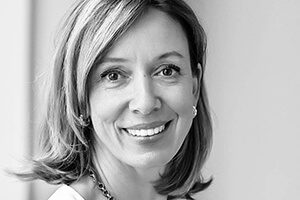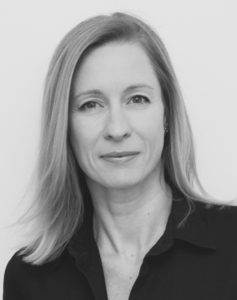In cooperation with Circular Change, the first Circular Economy platform in the Adriatic Region, the Research Group Circular Economy Systems intends to explore and advance the interdisciplinary theoretical foundations of a Circular Economy in relation to systems research as well as the various applications of a pathway towards it, advancing the current status quo of Circular Economy research and applications.
The concept of a Circular Economy is grounded in the study of feedback-rich non-linear systems, particularly living systems. In this eco-systems framework the research group explores how our economic systems can work like organisms, processing “nutrients” that can be fed back into cycles—on a biological or technical level. The contemporary understanding of the Circular Economy and its applications to small- and large-scale economic systems evolved integrating diverse features and contributions from a variety of concepts sharing the idea of interrelated closed loops.
A Circular Economy is a regenerative system in which resource input and waste, emission, and energy leakage are minimized by slowing, closing, and narrowing energy and material loops, to achieve business as well as national economic models that are economically and environmentally sustainable.
Kenneth Boulding‘s essay “The Economics of the Coming Spaceship Earth” is often referred to as one origin of the concept of the “Circular Economy”. Boulding, who co-founded the Society for General Systems Research (today: ISSS) together with Ludwig von Bertalanffy, was one of the first in 1966 who raised awareness towards an “Open Economy” with unlimited input resources and output sinks as a contrast model to a “Closed Economy” with tied resources and sinks.
At the BCSSS the research group focuses on transdisciplinary research to translate the foundations of systems science into creating further value, in environmental and societal benefits, zero waste and highly productive innovations and Next Economy growth models, to contribute to the necessary systemic shift that builds long-term resilience and future oriented opportunities.
 Ladeja Godina Košir is an internationally recognised Circular Economy Leader, the finalist of The Circular Awards / WEF 2018. An entrepreneur with a background in the creative industries, today the driving force of the circular economy in Slovenia and Central-Eastern Europe.
Ladeja Godina Košir is an internationally recognised Circular Economy Leader, the finalist of The Circular Awards / WEF 2018. An entrepreneur with a background in the creative industries, today the driving force of the circular economy in Slovenia and Central-Eastern Europe.
Ladeja is the Founder and Executive Director of Circular Change, the first circular economy platform in the Adriatic Region. She regularly publishes on CE and is a co-author of the “Roadmap for CE in Slovenia”. She is an inspirational speaker and empowering moderator at international CE events.
She is a member of the European Circular Economy Stakeholder Platform (ECESP) coordination group in Brussels. She contributed to different juries and program boards in the field of marketing and innovation and won several national and international awards for her creative work and for development of innovative business models.
 Karin Huber-Heim is founder and CEO at ‘csr & communication’, an internationally operating consulting firm for Corporate Sustainability & Innovation, Stakeholder Relationship Management & Communications, and dedicated to reach the Global Goals.
Karin Huber-Heim is founder and CEO at ‘csr & communication’, an internationally operating consulting firm for Corporate Sustainability & Innovation, Stakeholder Relationship Management & Communications, and dedicated to reach the Global Goals.
Karin studied communication with a strong focus on psychology at the University of Vienna and has academic education in CSR-Management. She publishes regulary on topics related to sustainable development and is a conference speaker and moderator, she is enthusiastic about the great opportunities the Sustainable Development Goals (SDGs) provide for society and embraces Circular Economy for sustainable business innovation. As Board Member of the Global Compact Network Austria, she leads an intersectoral working group on SGD 12, targeting responsible consumption and production, for Circular Economy.
Karin also is Academic Programm Director of a postgraduate masterprogramm on “Sustainability & Responsible Management” and lecturer of Business & Management Ethics, CSR and Stakeholder Communication at various universities of applied sciences.
Circular Economy Forum Austria publishes study on stakeholders’ expectations and perspectives on a circular economy
Circular Economy Forum Austria of BCSSS publishes a nationwide study in March which shows the level of knowledge and understanding of Austrian companies.
Circular Economy Forum Austria of BCSSS is part of the jury of the Vitalpin Climate Investment Award
With our expertise, we contribute to the selection of innovative solutions for sustainable management in the Alpine region. BCSSS Director Karin Huber Heim, represents the Circular Economy Forum as a juror. Vitalpin KlimaInvestment is a programme organised by Vitalpin and ClimatePartner that awards funding prizes of around EUR 65,000 for…
Keynote at the invitation of the expert group “Value Recovery with Digital Technologies” – CIRCULAR4.0
As part of the CIRCULAR4.0 project, Umweltcluster Bayern invited experts from the transnational working group “Value Recovery with Digital Technologies” to an exchange. BCSSS Director Karin Huber-Heim, representing the Circular Economy Forum Austria, presented Austrian good practice and discussed the challenges and potentials with experts from all countries of the…
Keynote at the Circular Business Academy Conference
What makes a company a sustainable circular investment? What criteria can be found in the EU taxonomy? At the Circular Business Academy Slovenia conference on 19 January 2021, Circular Economy Forum Austria of the BCSSS Director Karin Huber-Heim will give a keynote speech on “Institutional readiness unleashing opportunities arising from…
Expert Panel at SATI2020digital Conference
The Sustainable Alpine Tourism Initiative aims to promote knowledge exchange and cooperation on the topic of sustainability in Alpine tourism.
Presentation of the Circular Economy Forum Austria of BCSSS at the CSR – TAG 2020
“Achieving more with less” is the title of the Circular Economy Forum Austria of the BCSSS session on CSR Day 2020 (21-22 October): we invite company representatives Eva Eidinger-Simacek (Lidl Austria), Thales Crivelli Nunes (Borealis), Kilian Kaminski (refurbed) to discuss their challenges and issues with interested participants. The founding partners…
Keynote at the Masovia Circular Congress 2020
Beyond recycling and waste management, the regenerative circular economy has great potential for innovative industry leaders and courageous entrepreneurs. The economic focus is on a new generation of consumers who want to use instead of own. The Circular Economy Forum of BCSSS presents Austrian good practice.
Online Seminar “Collaboration for a Circular Economy”
The regenerative circular economy needs cross-sectoral cooperation, interdisciplinarity and out-of-the-box thinking. Above all, this requires partners who are ready for radical collaboration and can leave solo thinking behind. Circular Economy Forum Austria of the BCSSS organised the online seminar “Collaboration for a Circular Economy” together with Circular CoCreation as part…
Subscribe to our Systems Newsletter
Recent News
- Keynote at the invitation of CIRCULAR4.0 “The European Green Deal – Economic Potential for SMEs”
- Keynote address at the invitation of Energie Steiermark “Potentials of the Circular Economy”
- Expert interview with Circular Business Academy (CBA), Slovenia on the innovation potential of the circular economy for SMEs
- UNIDO: Global consultations on circular economy
- Mission Innovation Austria 2021: A platform for all drivers and shapers of innovation and the energy system of the future








